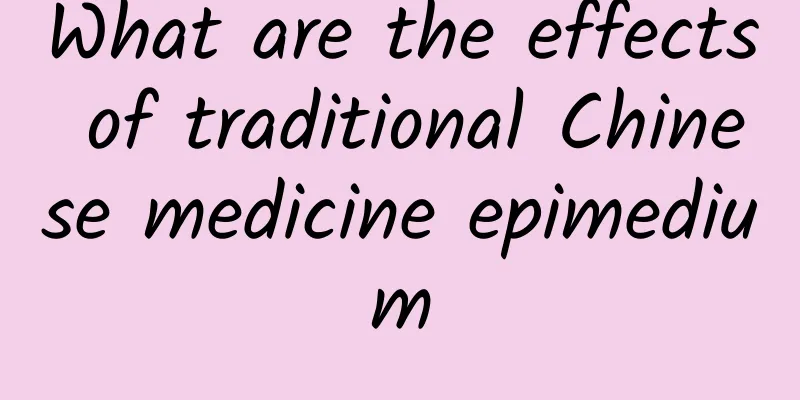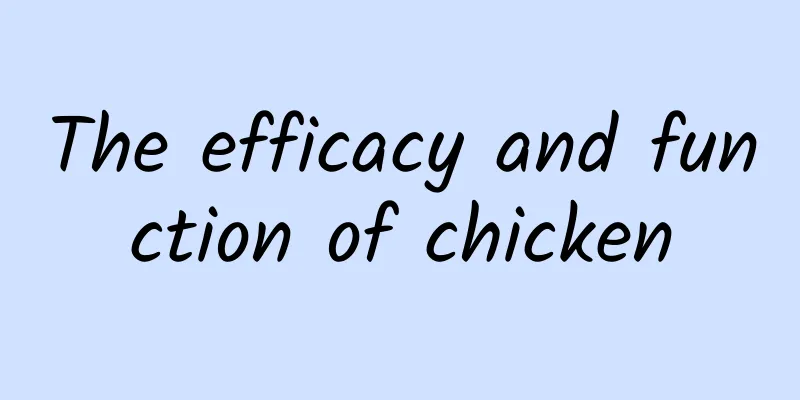What are the effects of traditional Chinese medicine epimedium

|
Few people know that Epimedium has a high medicinal keratin content. It can strengthen the kidneys, strengthen the muscles and body, and eliminate rheumatism. Because it contains male hormones, it can help treat impotence earlier. It can stimulate nerves to make the penis erect and dilate blood vessels. Therefore, it is effective for respiratory diseases such as asthma and cough. It can lower blood pressure and blood lipids, and is very suitable for menopausal hypertension. At the same time, it can eliminate cold and dampness, promote bone marrow synthesis, and prevent osteoporosis. There are many other benefits of the traditional Chinese medicine epimedium, which are introduced in detail below. Epimedium, also known as Epimedium. Li Shizhen said: Epimedium tastes sweet and has a fragrant smell. It is warm in nature and not cold. It can replenish the essence and qi, and is suitable for those with insufficient true yang. As for why it is called epimedium? The reason is that in northern Sichuan, many villagers are shepherds. After the sheep eat this grass, they mate a hundred times a day without dying, so people call it Epimedium. The reason why Epimedium is called Epimedium is that it often eats local grass that resembles bean leaves (bean leaves are called Huo), so it is named Epimedium. It is a commonly used medicine in clinical treatment of male impotence caused by insufficient true yang. Epimedium tastes spicy and sweet, is warm in nature, and enters the liver and kidney meridians. It is light in weight and has a strong energy, and can both ascend and descend. It has the effects of nourishing the kidney and strengthening yang, dispelling wind and dampness, and strengthening muscles and bones. It is mainly used to treat impotence due to kidney deficiency, spermatorrhea and premature ejaculation, infertility due to cold sperm, frequent urination and incontinence, asthma and cough due to kidney deficiency, soreness of waist and knees, spasms of muscles and bones, rheumatic pain, numbness and spasm, hemiplegia, numbness of limbs, menopausal hypertension, minor stranguria, asthma and cough, etc. When taking Epimedium, be careful not to eat carrots, as it will weaken the efficacy of the medicine and fail to achieve the desired effect. During the period of taking the medicine, avoid eating raw and cold foods that are irritating to the gastrointestinal tract. Also, do not drink strong tea. The chemical components in strong tea can easily reduce the efficacy of the medicine after neutralization with the traditional Chinese medicine and affect its absorption. Epimedium is not suitable for people with internal heat and irritability, as well as people with hypersexuality, otherwise it may cause side effects such as dizziness and nosebleeds. |
<<: What are the effects of the traditional Chinese medicine Poria
>>: What are the effects of Chinese medicine Prunella vulgaris
Recommend
The efficacy and function of cutting charro root
Most Chinese medicinal materials have good effect...
Hot search! Can a small belly protect the uterus and ovaries? Excessive abdominal fat is very harmful!
gossip "Women's small belly is to protec...
What are the effects of fresh dendrobium?
Fresh Dendrobium refers to fresh Dendrobium, whic...
There are 6 recipes for soaking kidney-tonifying Chinese medicine in water
Kidney deficiency is a condition that we often en...
How long does it take for Chinese medicine to take effect?
How long it takes for Chinese herbal medicine to ...
What are the medicinal values of Panax notoginseng flower?
Panax notoginseng flower is a part of Panax notog...
There is a new discovery! Behind these two bricks, there is a big secret...
Green-glazed lotus tiles, blue-glazed square bric...
How to deal with space junk? Does it need to be sorted?
Before we knew it, the Shenzhou 14 crew has been ...
What are the functions and effects of milkwort?
In tropical regions, there is a plant called milk...
Why is it snow "flowers" instead of snow "grass" or snow "trees"?
Snow is a pure white gift from nature to people. ...
The efficacy and function of wild tea
Wild tea chili can not only supplement the body&#...
The efficacy and function of Clerodendrum schizonepeta
Only when we understand the main ingredients of a...
What diseases can mulberry leaves cure?
Mulberry leaves can treat diabetes, inhibit the r...
The ancient bridge with 10 cm deep ruts was once a water and land wharf on the Grand Canal.
The plum rains have cleared, and the summer breez...
Why Cantonese People Can't Eat Fujianese? Prions Have Something to Say
The "food chain" relationship between C...









